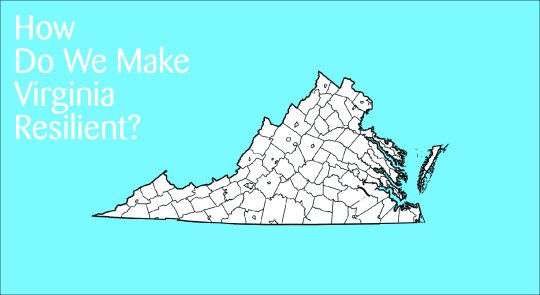Question Your World: How Can We Make Virginia More Resilient?
The Norfolk area of Virginia has been in the spotlight for some time now. Our coastal areas have been making news because they are experiencing the fastest sea level rise on the East coast. These issues may seem small now, but they hold very serious consequences in the near future. We can’t quite reverse the trend in our neck of the woods, but we can prepare and make proper plans for the future of our state based on the data provided by climate experts. The big question remains, how can we make Virginia more resilient?
To begin, let’s dig into the word Resilient, itself. The word Resilient is derived from the Latin word “Resilire” which means “to spring back” or “to rebound.” In more modern times, resilience has been defined as “the ability to prepare for and adapt to changing conditions, and to withstand and recover rapidly from disruptions” (Presidential Policy Directive 21). In other words, something is resilient if it bounces back stronger after hard times. While the day-to-day goings-on of our state have been relatively unaffected, we must look ahead and prepare to tackle the many implications of climate change. We will need to be resilient if we are going to safely live with an ever changing set of conditions.
So, what can be done? Lucky for us, scientists across the world agree that there is one thing all humans seem to love to do, talk. We talk a lot. When we’re not talking, we’re posting, liking, tweeting, or snapchatting. There’s a lot of communication happening within our species. For the sake of future generations and quality of life here in Virginia, perhaps we could use some of that communication time to address some serious issues that face our region. By encouraging conversations between homeowners, local businesses, and city governments, we can begin the dialogue on how we will collectively be able to handle some of the repercussions of climate change related events.

As large soaking rainstorms are projected to become more common in the future, so is the risk of substantial flooding in the Tidewater region. Our coastal communities and the rest of the state need to be pushing the resiliency topics when and where possible. There are some good questions that homeowners, businesses, and governments could be asking right now. Do we have an evacuation plan? Where are the emergency shelters? Does your family know how to handle emergency events? All important questions and a conversation that needs to be had in order to plan ahead.
If previous flooding events in this region have taught us anything, it’s that proper planning can go a long way. The climate patterns seem to indicate that these changes will continue to happen for some time and will be bringing a new set of issues and concerns along with the changes. Everything from family emergency storm preparation to retrofitting a neighborhood to be more resilient are all viable action items that need to be addressed openly. In the event of massive storm surges, we, as a united community, need to be ready to take care of one another and our civic infrastructures. However, none of this will happen if you don’t get involved.
We already spend so much time talking and communicating, why not turn some of that energy into making Virginia more resilient? After all, we only have one state we call home, so let’s keep ourselves safe and healthy, and let’s be ready to tackle whatever comes our way. Let’s get resilient, Virginia!